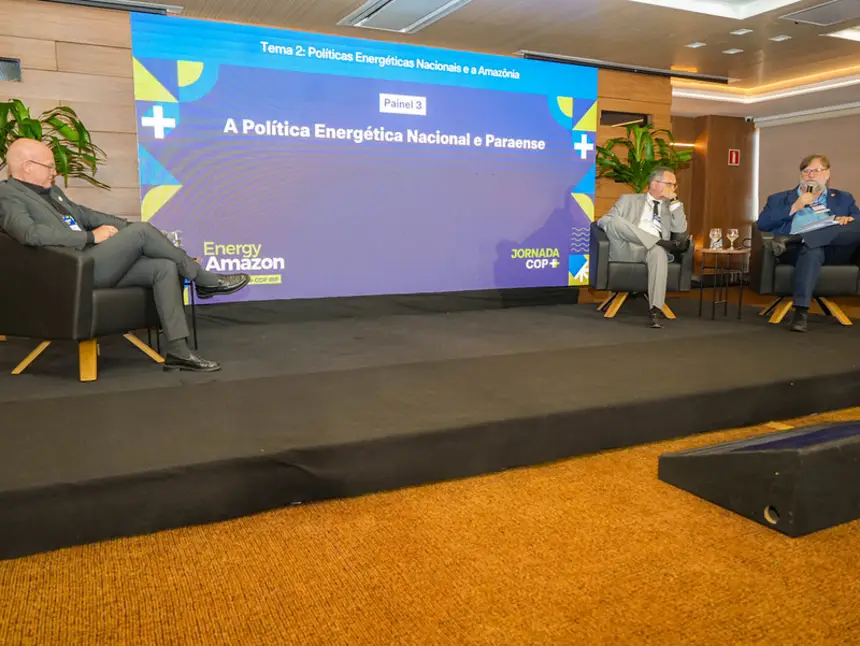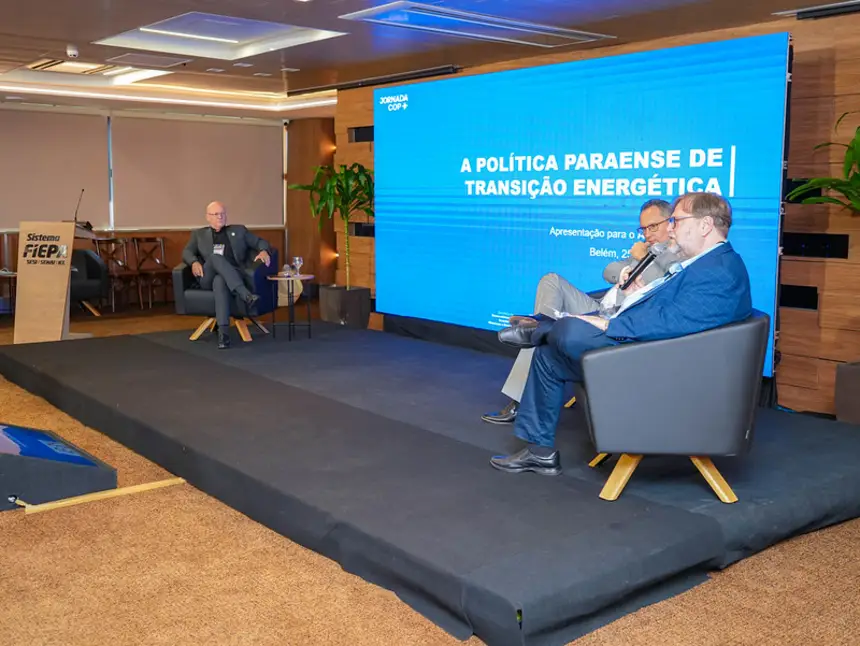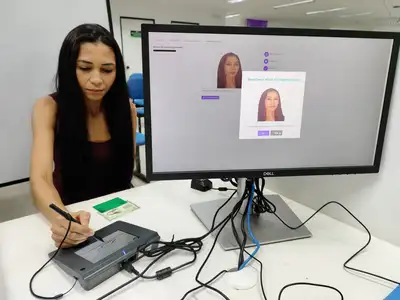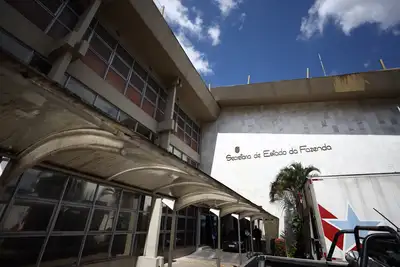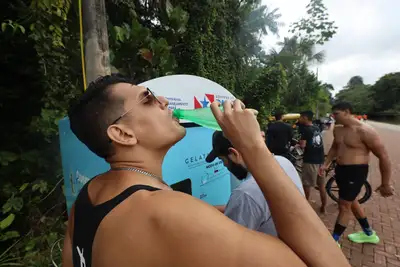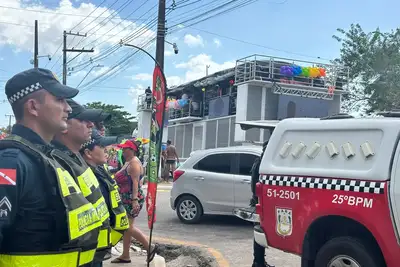Pará reaffirms commitment to sustainable energy transition at the Amazon Energy Conference
The program included panels that discussed the main challenges and guidelines for energy integration aimed at regional development, prioritizing sustainability, social inclusion, and biodiversity conservation.
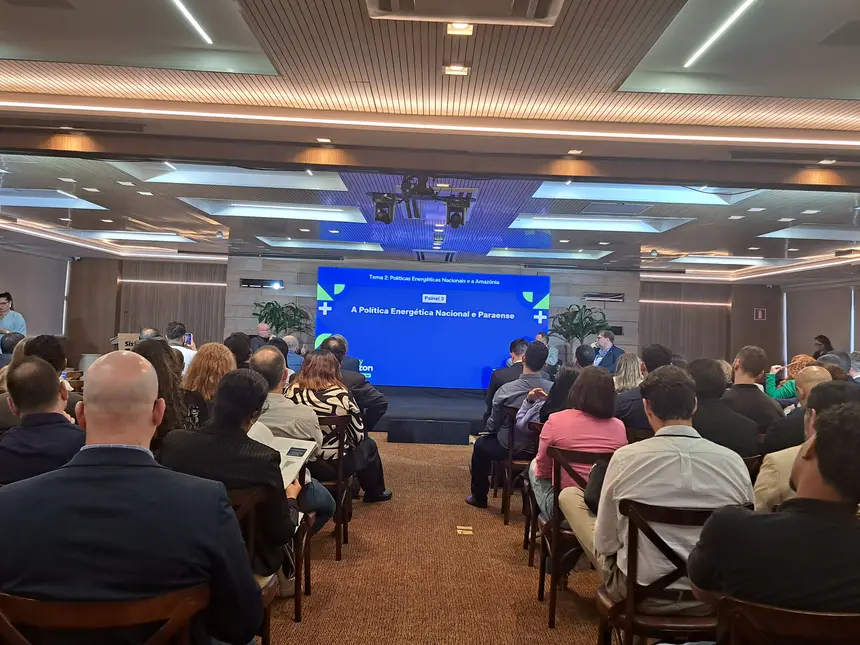
The Government of Pará, through the State Secretariat for Economic Development, Mining and Energy (Sedeme), represented by the head of the department, Paulo Bengtson, participated in the Amazon Energy Conference – 2nd Pre-COP IBP Event. The initiative, promoted by the Federation of Industries of the State of Pará (FIEPA), via COP+ Journey, in partnership with the Brazilian Institute of Oil and Gas (IBP), took place at FIEPA's headquarters in Belém.
Focusing on a fair and sustainable energy transition in the Amazon, the meeting brought together representatives from government institutions, political authorities, entrepreneurs, and experts to discuss energy exploration in the region, with an emphasis on the Equatorial Margin.
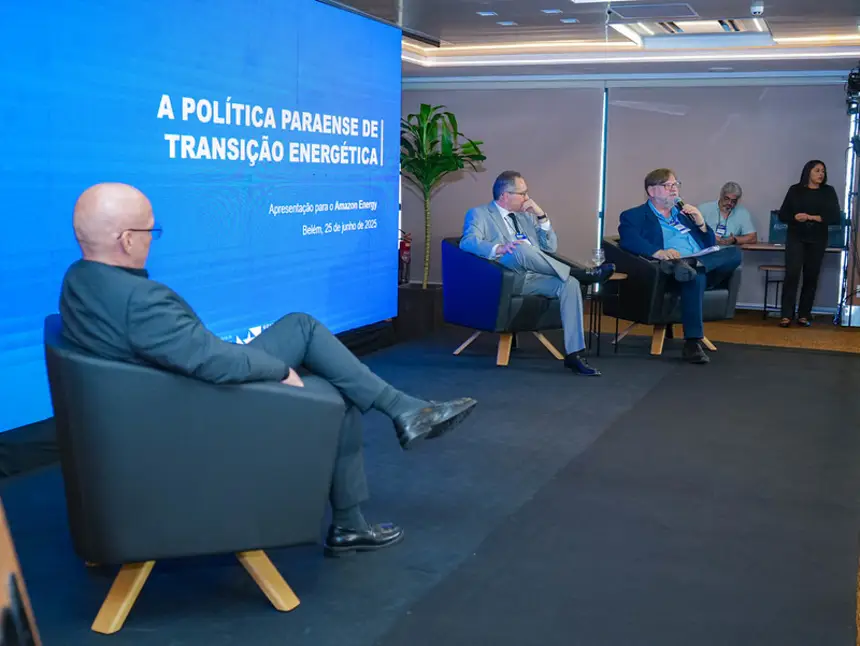
The program included panels that discussed the main challenges and guidelines for energy integration aimed at regional development, prioritizing sustainability, social inclusion, and biodiversity conservation.
During the panel "National and Pará Energy Policy," Secretary Paulo Bengtson reiterated Pará's commitment to low-carbon socioeconomic development, aligned with environmental protection. Energy integration in the Amazon is essential not only for economic growth but also for the balance of the planet, highlighting the importance of guidelines that ensure social inclusion and respect for ecosystems.
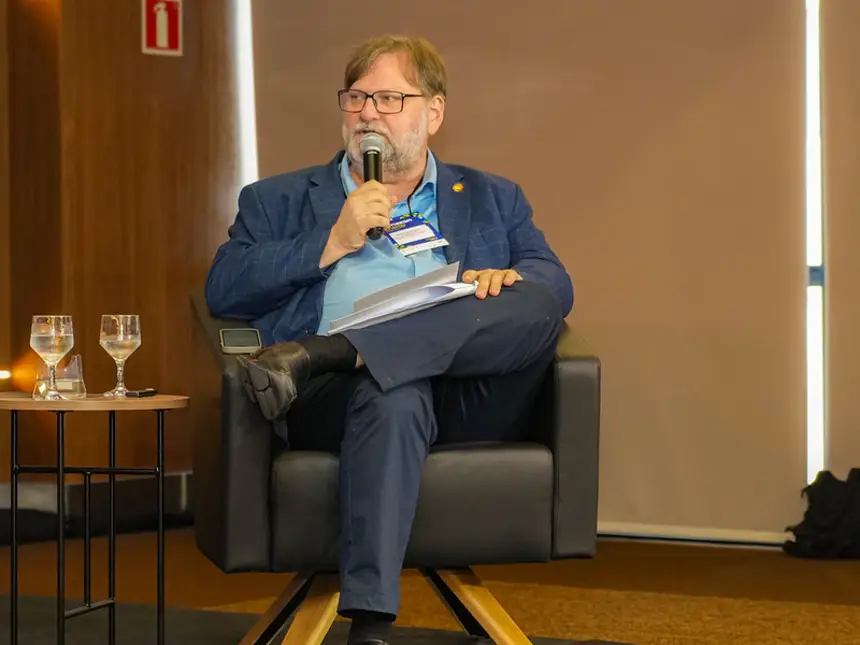
Bengtson shared the panel with Carlos Agenor, director of the Department of Oil and Natural Gas Exploration and Production Policy of the Ministry of Mines and Energy (MME), mediated by Alex Carvalho, president of FIEPA.
The event took place this week, bringing together public and private institutions engaged in promoting solutions aimed at the production and distribution of energy in Pará and the Amazon. The proposal is to articulate government, companies, academia, and civil society in building strategies aligned with local and regional energy policies.
Bengtson emphasized that Pará is working on various strategic fronts to enable a sustainable energy transition, in line with the National Energy Policy. The initiatives aim to universalize access to energy and ensure supply security, contributing to the reduction of regional inequalities.
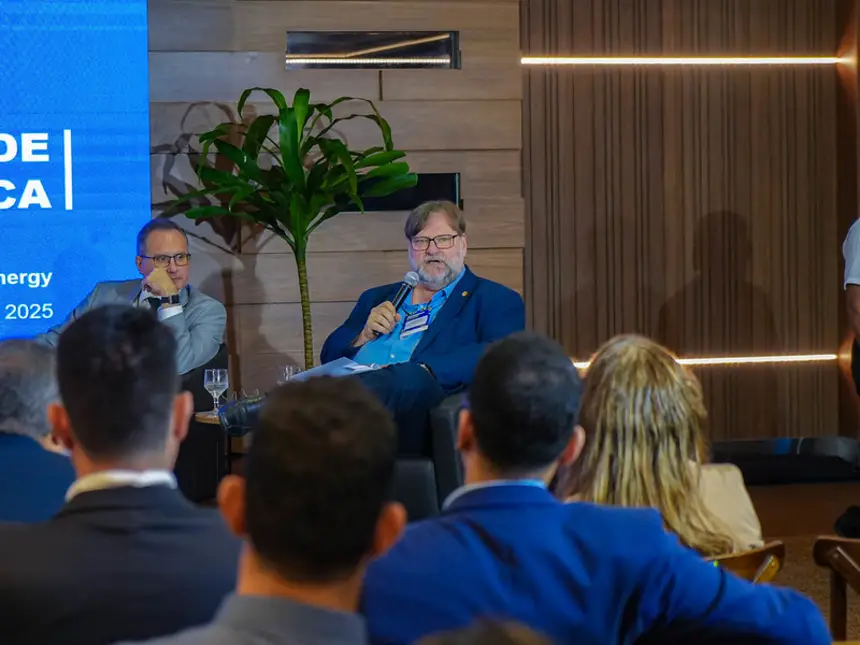
“One of the highlights is the Socioeconomic Inclusion Program (PIS), managed by Sedeme and executed by Equatorial Energia, based on a commitment agreement. The initiative enables the implementation and expansion of electrical networks in remote areas of social interest, promoting development through access to energy. It has already benefited more than six thousand families and has contributed to the reduction of fossil fuel use and greenhouse gas (GHG) emissions,” he stated.
He added that the PIS also includes the installation of three-phase networks in regions with potential to attract investments, strengthening the business environment and driving sustainable growth.
In the context of the energy transition, Bengtson emphasized the importance of a practical debate connected to local reality, involving listening to communities, analyzing regional data, and recognizing the specific potentials of the Amazon. “This includes exploring alternatives such as offshore gas production and, above all, assessing the timelines for granting licenses, in order to clearly identify our competitive advantages in the region,” he explained.
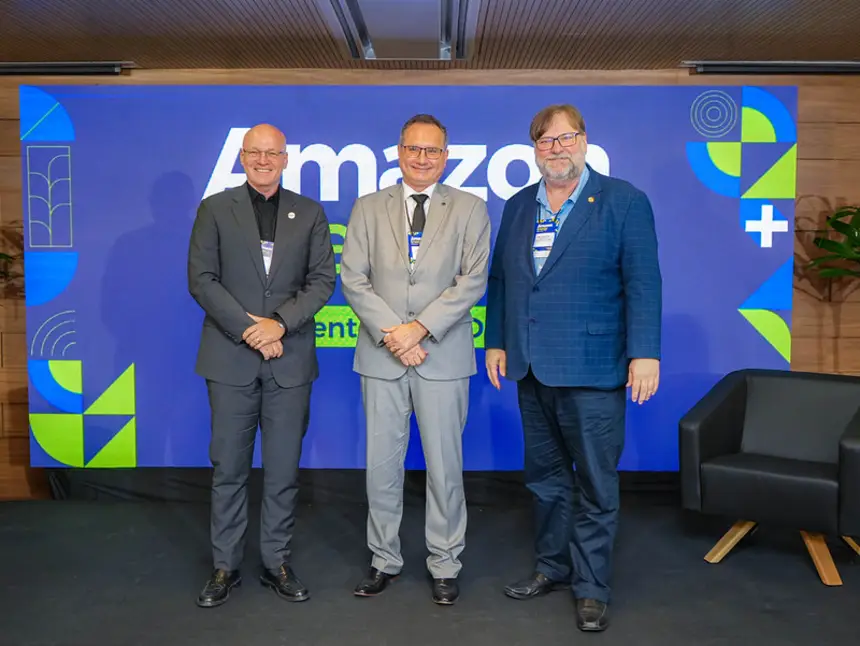
On the occasion, director Carlos Agenor presented the legal milestones established by the MME and advocated for a fair, inclusive, and balanced energy transition. He highlighted the renewable profile of the Brazilian electricity matrix — 83%, according to the Ministry — and positioned Brazil as a global reference in reduced emissions and low environmental impact, compared to other countries. In this context, the role of Brazilian oil was also highlighted, which has very low greenhouse gas emissions. Exploration and production activities in the country are characterized by generating low environmental impact while promoting job and income generation.
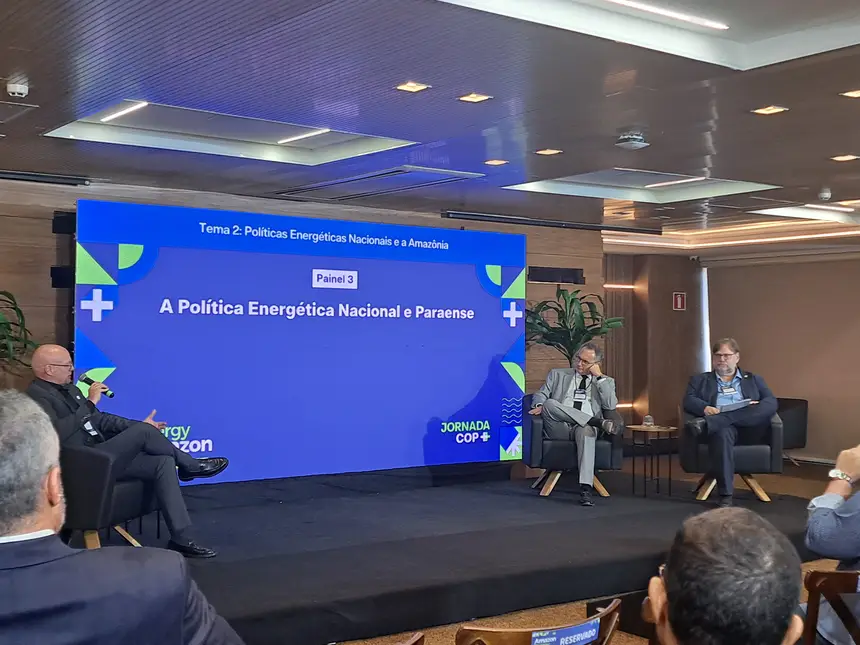
He advocated for the strategic use of available energy resources: “If we have oil and gas, we must explore them with agility and strategy. “We need to monetize these assets — especially gas — so that they are not wasted. The global energy pressure represents, for us, an opportunity. We have full conditions to reduce external dependence and expand our role as exporters, both of oil and derivatives, as long as the deficiencies of internal production are overcome. This is the path we must take,” Agenor stated.


